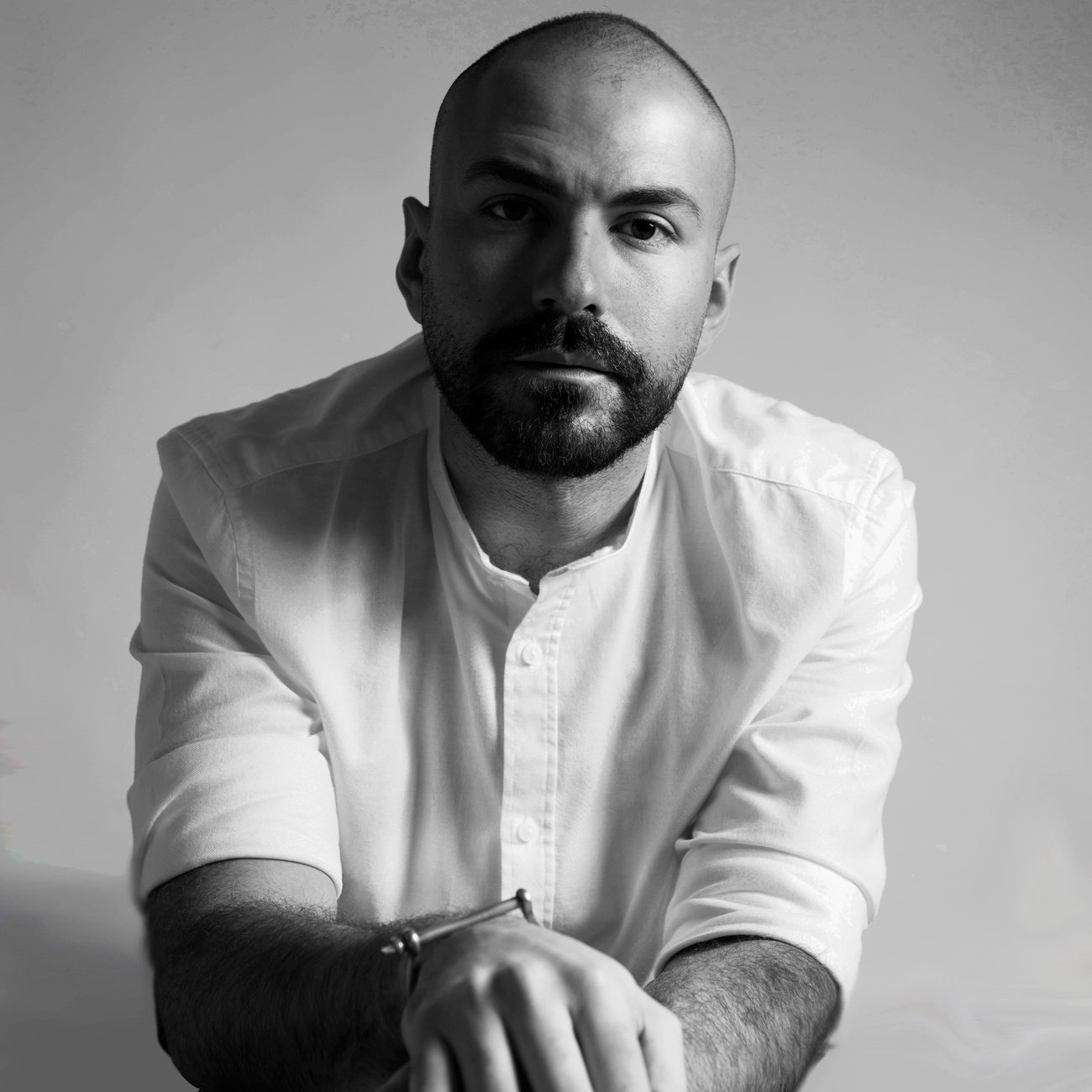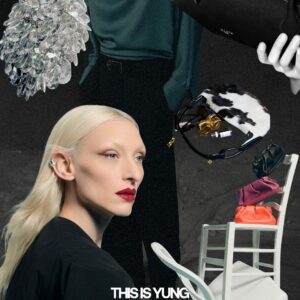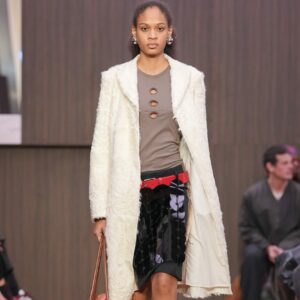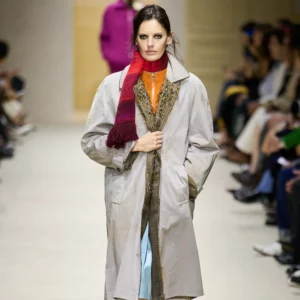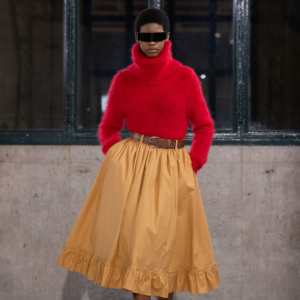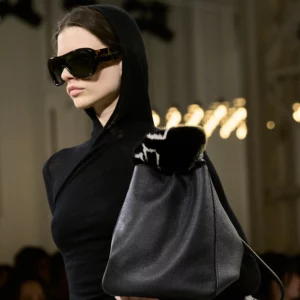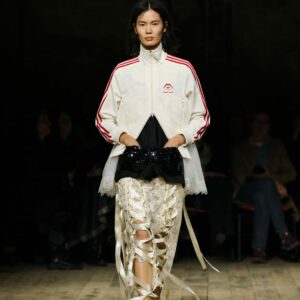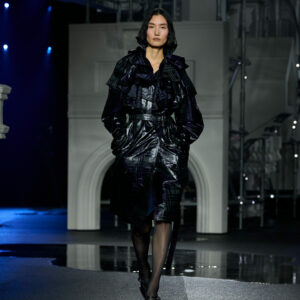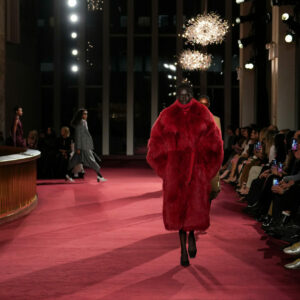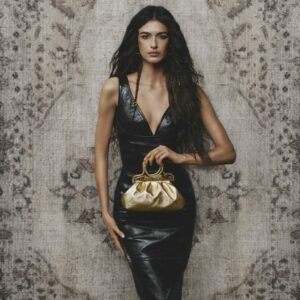Growing up in Syria, Tarek Abu Samra would spend time in fabric stores and read fashion magazines. As a young boy, he would spend time with his aunt, a dressmaker in Syria. From there, he would develop important skills that would see him navigate fashion school with ease. Equipped with the know-how, and a mind bursting with ideas, he would flee the war in Syria and find himself in Beirut – and from there: his sustainably-driven fashion brand, Atelier Forger.
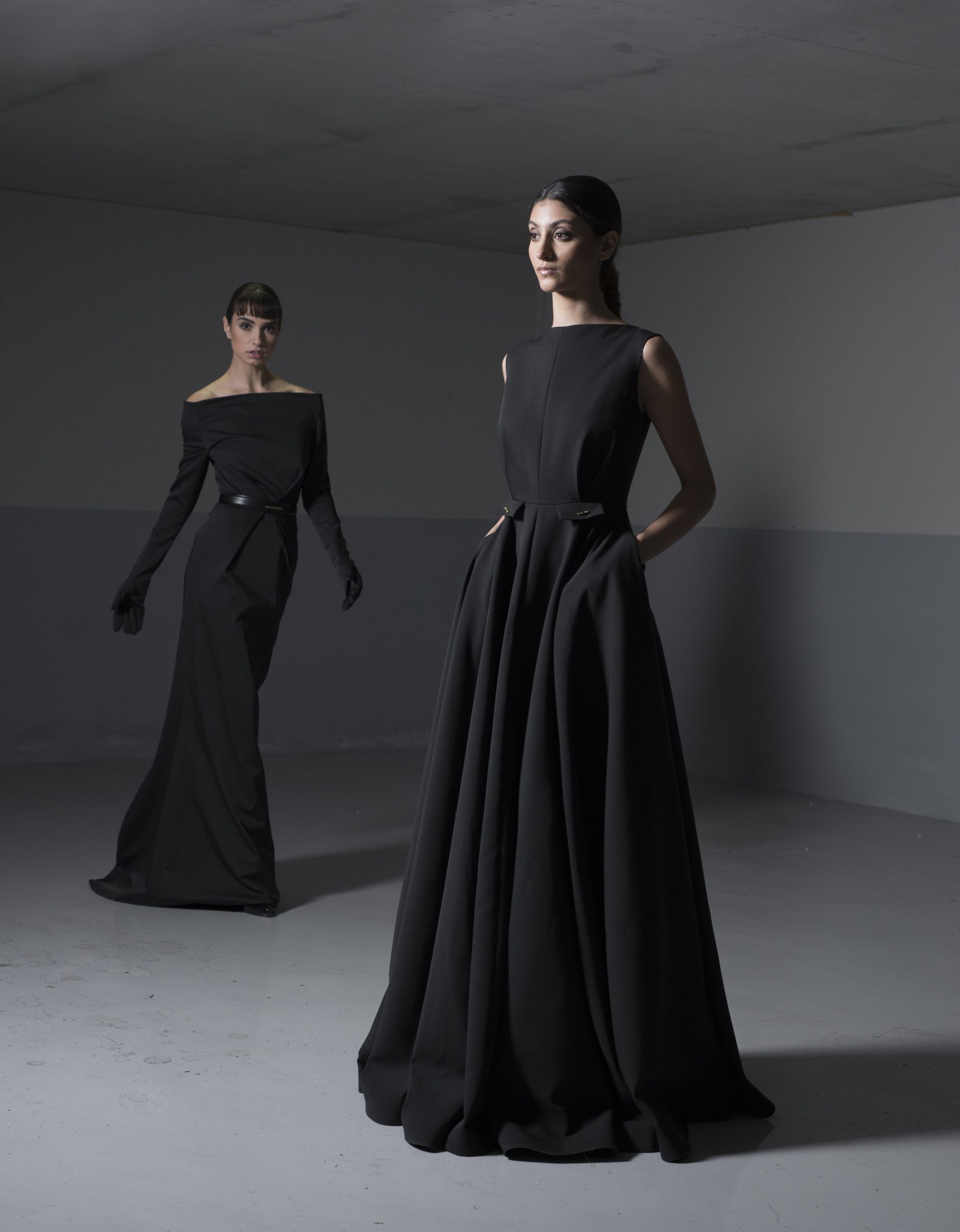
Tell us about the impulse and origins of how you became a designer
My aunt who used to wear the most beautiful clothes would sit me down every day and teach me to sew. She would teach me about textiles, and how different types flattered different bodies. I would use some of her fabrics, which were riches for me. I learned how to dress women to make them feel confident, improve their moods, and allow them to diversify a piece of mine at any time in two ways or even more sometimes. By age 10 I was drawing my ideas and reading fashion magazines. When my friends went to the toy store, I went to the fabric shops. I was amazed at the beautiful patterns, designs, and textiles. At the age of 15 I took my first course in fashion design, and continued at a fashion design institute in Damascus. When I moved to Lebanon, I got my first job as a chief designer for a leading fashion house, where I would pounce on every opportunity to grow and learn more.
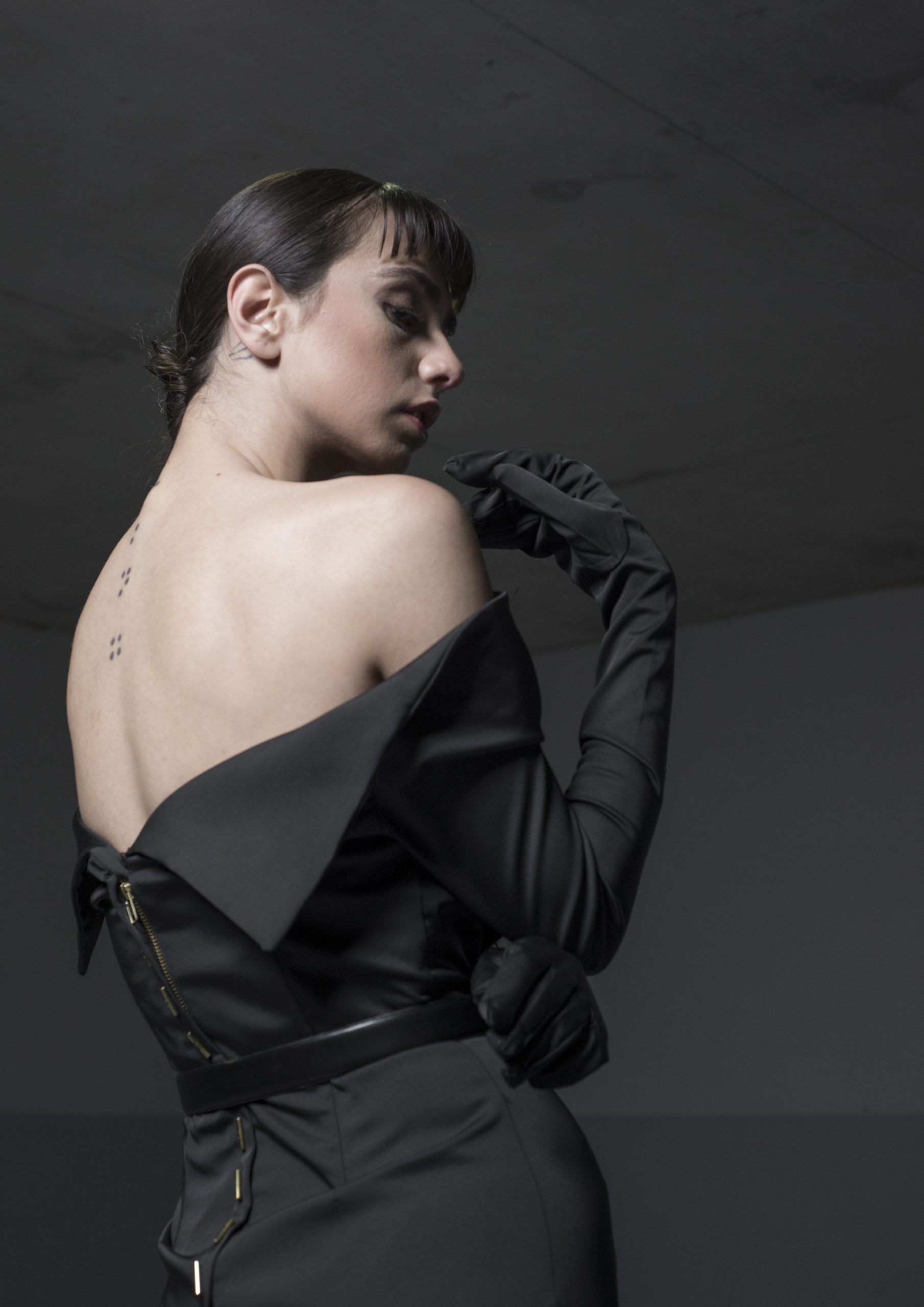
Is it difficult to continuously try and innovate?
Every time I sketch a new design, I feel like I’ve given it my best shot. Then, I look at it again after a few minutes and think I can do much better. Do I find it difficult to continuously innovate? I don’t think so. I just have an innate need to always do my best.
How do you balance originality with commercial appeal?
I always say: “Design is a powerful tool that can transform how people interact with real life”.
Which designer do you admire the most and why?
Honestly, there’s more than one designer! But I think Azzedine Alaia is the designer I admire the most. Specifically his keen perspective on fashion and the way he translates his vision into clothes that are almost masterpieces. Volumes, cuts, shapes, and he creates unique ideas that make him more than a designer, an artist.
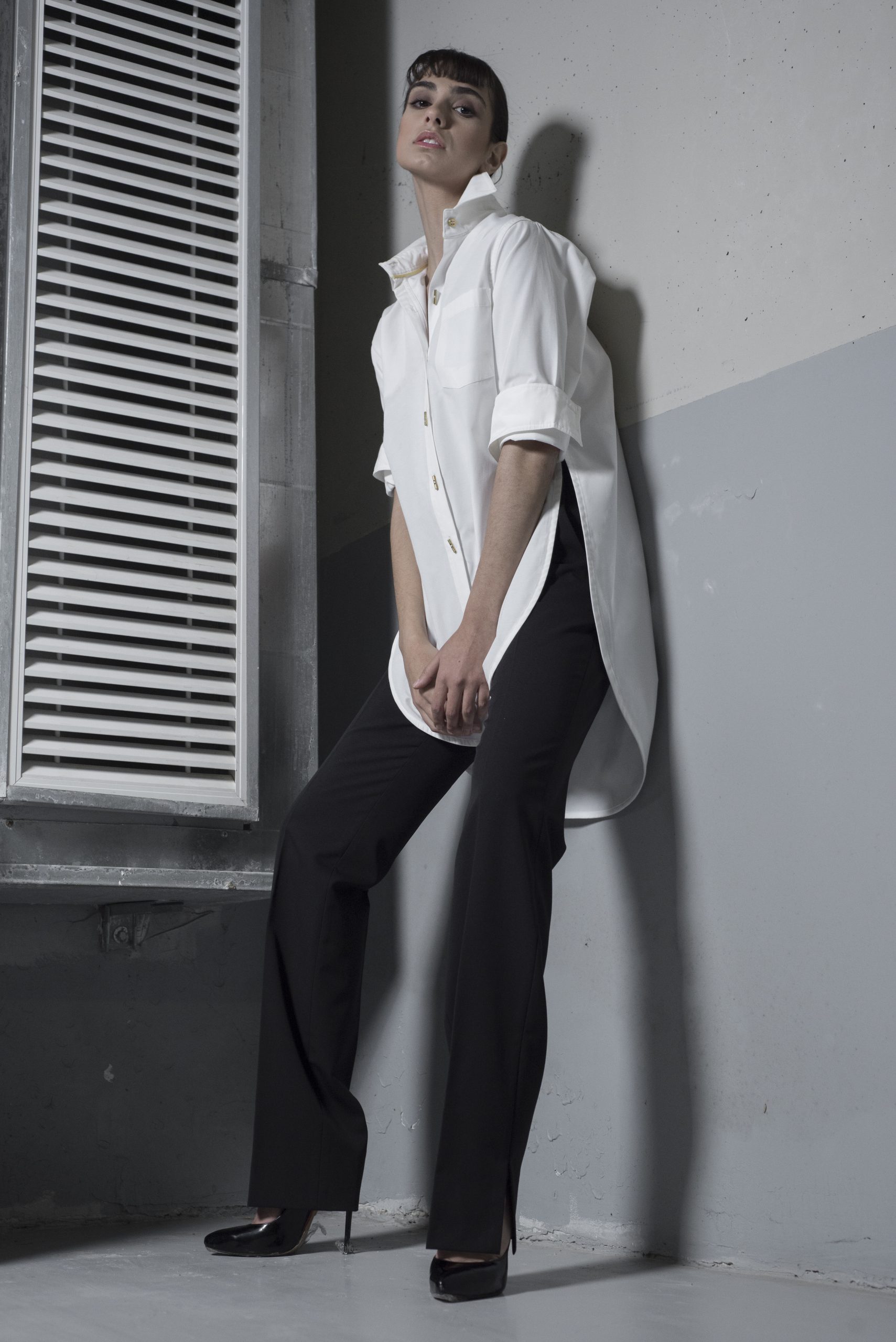
If your clothes had a soundtrack, what would they be?
Each collection, each inspiration has its moment for me. A moment that connects history with the future. But if I have to name something specific I’d say classic musical theatre pieces.
What struggles have helped shape you throughout your career?
Undoubtedly, the Syrian War left a huge mark on my life. I had to flee to Lebanon just after graduating college. That part was also extremely difficult for me. As a Syrian trying to find a job, prove myself, the struggle to fit in – it all seemed like Mission Impossible at the time. But, I was determined to rise above all of it and make a mark for myself despite the incalculable challenges I faced day in and day out. The one silver lining is that the challenges, the hustles, and the side jobs have all improved my street smarts and helped me grow my personal and professional skill sets. Determination and perseverance were my guiding light along the way, leading up to the launch of my Atelier Forger brand.
Tell us about your latest collection
When designing The Lagom Collection, I drew inspiration from the golden 1950s which best showcased women’s beautiful silhouettes. While each piece is rooted in this foundation, the collection exudes a dreamy modern flair. The Lagom collection feature subtle details built for comfort and versatility, with a perfect feel and fit. These defining traits provide the customer with the freedom to mix and match what they choose to wear I named this first collection “Lagom” because of its overall look & feel. In keeping with its Swedish & Norwegian meaning of “just the right amount”, Lagom describes that which is “in balance”, or a “perfect-simple”.
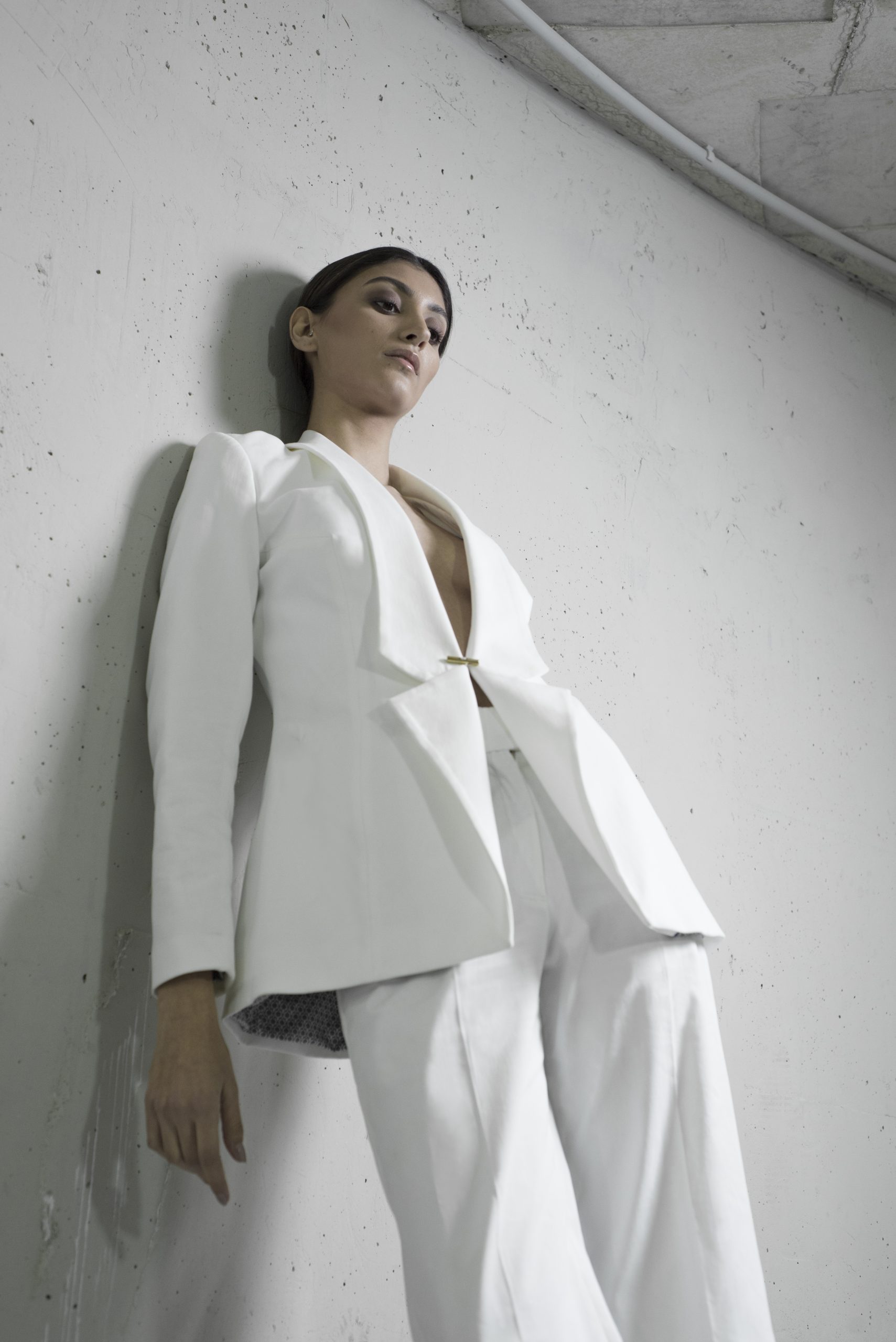
Leaving Syria must have been very difficult. What can you tell us about that time?
I was in my third year studying fine arts when the war broke out. I moved to Lebanon just one year after I completed my bachelor’s degree. It was more of an escape, unfortunately. The world was supposed to be my oyster after graduation, so to speak, but the opportunities that I dreamed about vanished.
The first year in Lebanon was especially hard for me. I was alone in a brand new environment. But gradually, I cemented my presence there and met some good people who helped me along the way. Yes, it may have been a rough hill for me to climb, but instead of bringing me down, it forced me to find the fire within and thrive despite everything.
Tell us about your sustainable ethos
From the beginning, I was determined to create a fashion brand that works to preserve the environment. To make a difference in how fashion contributes to a better future for this planet. As a small start on my part, I began designing buttons made entirely by hand, from natural copper. This added lustre and luxury to the designs while avoiding plastic and other synthetic alternatives. Another decision was made to maintain only black and white colours in my collections. I was unhappy with the amount of pollution caused by the process of dyeing fabrics. Having said that, we are currently looking into alternatives toward reaching an organic dyeing process consistent with our principles.
